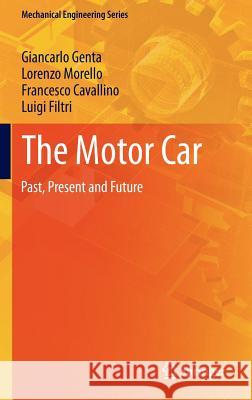The Motor Car: Past, Present and Future » książka
The Motor Car: Past, Present and Future
ISBN-13: 9789400785519 / Angielski / Twarda / 2014 / 662 str.
This book is an introduction to automotive engineering, to give freshmen ideas about this technology. The text is subdivided in parts that cover all facets of the automobile, including legal and economic aspects related to industry and products, product configuration and fabrication processes, historic evolution and future developments.The first part describes how motor vehicles were invented and evolved into the present product in more than 100 years of development. The purpose is not only to supply an historical perspective, but also to introduce and discuss the many solutions that were applied (and could be applied again) to solve the same basic problems of vehicle engineering. This part also briefly describes the evolution of automotive technologies and market, including production and development processes.The second part deals with the description and function analysis of all car subsystems, such as: . vehicle body, . chassis, including wheels, suspensions, brakes and steering mechanisms, . diesel and gasoline engines, . electric motors, batteries, fuel cells, hybrid propulsion systems, . driveline, including manual and automatic gearboxes.This part addresses also many non-technical issues that influence vehicle design and production, such as social and economic impact of vehicles, market, regulations, particularly on pollution and safety.In spite of the difficulty in forecasting the paths that will be taken by automotive technology, the third part tries to open a window on the future. It is not meant to make predictions that are likely to be wrong, but to discuss the trends of automotive research and innovation and to see the possible paths that may be taken to solve the many problems that are at present open or we can expect for the future.The book is completed by two appendices about the contribution of computers in designing cars, particularly the car body and outlining fundamentals of vehicle mechanics, including aerodynamics, longitudinal (acceleration and braking) and transversal (path control) motion."











